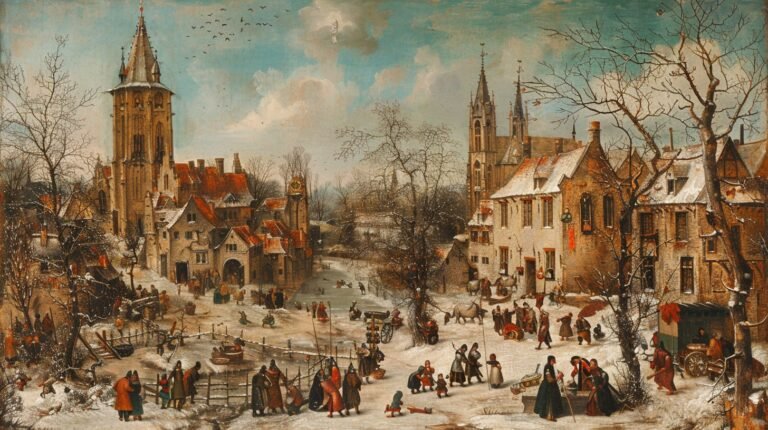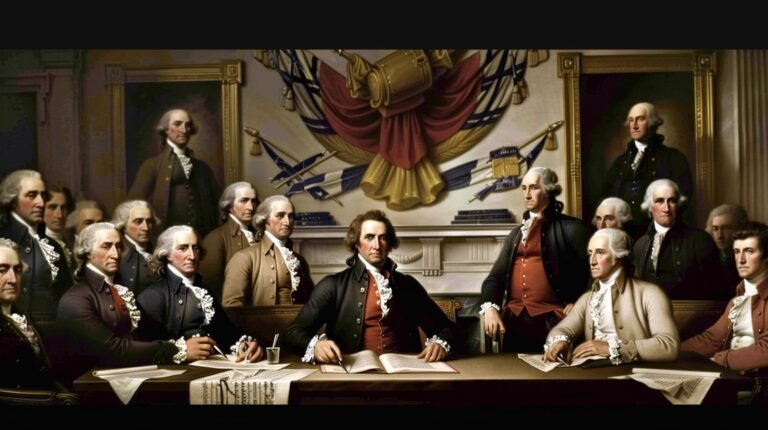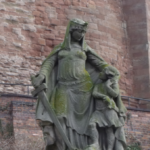British history is a tapestry woven with essential wars and clashes that have not only formed the nation’s identity but also influenced worldwide politics and power dynamics. From the Norman Conquest that set the establishment of modern Britain to the global impact of the World Wars, these events are significant to understanding the Britain we know today. Let’s explore the most characterizing clashes in British history and their lasting legacies.
The Norman Conquest (1066)
The Norman Victory stands as one of the most transformative events in British history. It all started with the passing of Edward the Confessor in 1066, leading to a control struggle for the English royalty. The key contenders were Harold Godwinson, delegated as King of Britain, and William, Duke of Normandy, who claimed the position of royalty based on a promise from Edward.
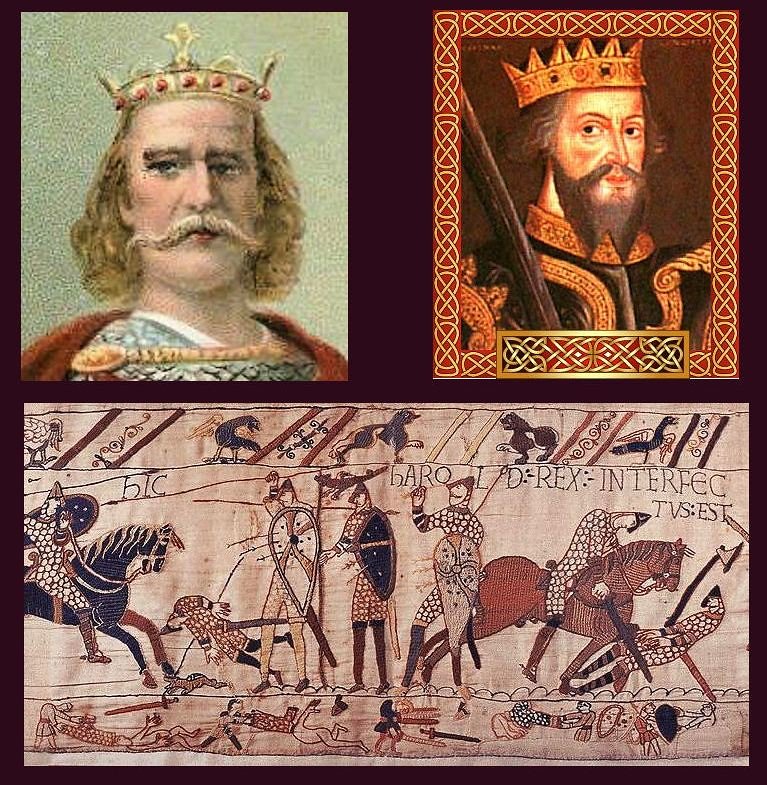
The conclusive moment came at the Battle of Hastings in October 1066. William’s powers crushed Harold, who was killed in battle, clearing the way for William to be crowned as William I of Britain, known as William the Conqueror. The Norman Victory led to significant changes, including the presentation of the feudal system, a modern aristocracy, and the mixing of Anglo-Saxon and Norman societies, which profoundly impacted the English dialect, legal system, and architecture.
The Hundred Years’ War (1337–1453)
The Hundred Years’ War was an extended and complex strife between Britain and France, driven by competing claims to the French throne. Beginning in 1337, this series of wars crossed over a century and saw sensational shifts in military strategy and national identity.
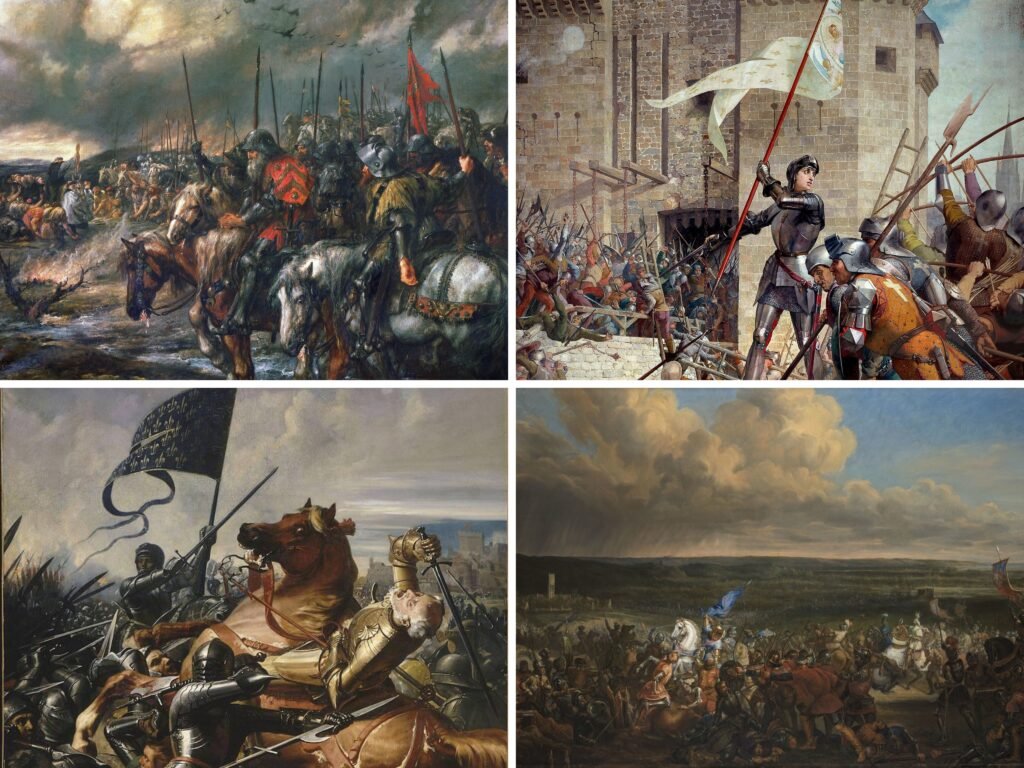
Key battles such as the Battle of Agincourt in 1415, where Henry V’s strengths triumphed against overpowering odds, remain legendary. However, the tide eventually turned in France’s favor, particularly with the rise of Joan of Arc, who motivated French resistance. The war ended in 1453 with Britain losing almost all its French regions, marking a turning point in England’s focus from continental desire to island-based control, setting the stage for a particularly English national identity.
The Wars of the Roses (1455–1487)
The Wars of the Roses were a series of civil wars between the rival houses of Lancaster and York, each competing for the English position of authority. These clashes drowned Britain into a period of instability and savagery. The wars finished in the Battle of Bosworth Field in 1485, where Henry Tudor vanquished Richard III, viably finishing the conflict.
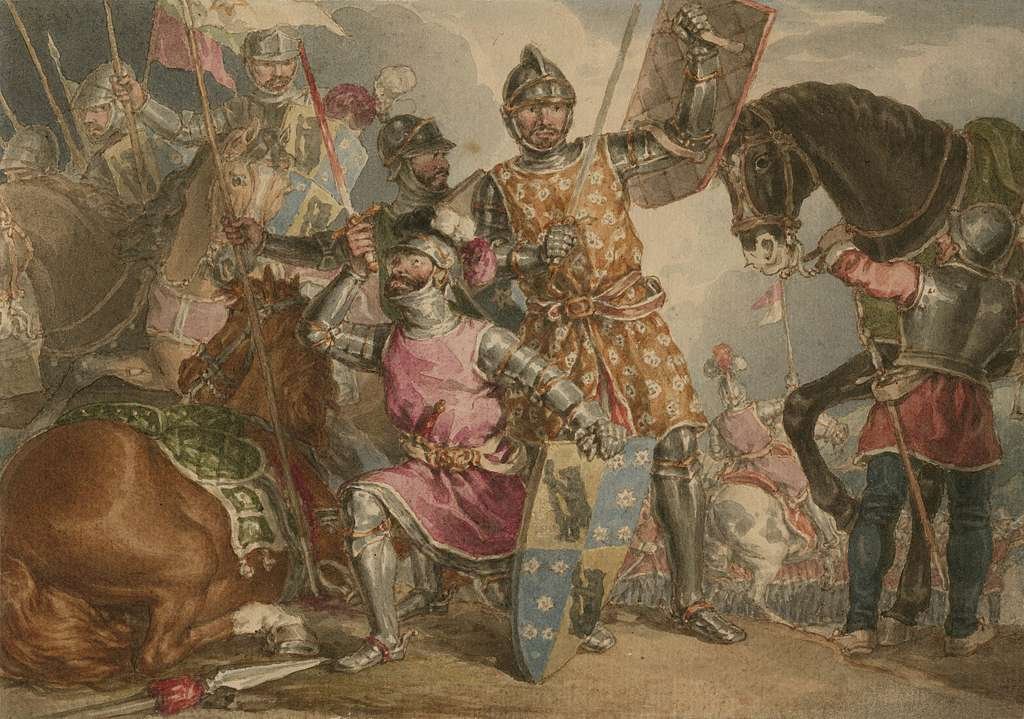
Henry VII’s triumph set up the Tudor dynasty, leading to a period of relative stability and the inevitable reign of his son, Henry VIII. The Wars of the Roses significantly changed the English monarchy’s power structure and straightforwardly led to the centralized, powerful Tudor state.
The English Civil War (1642–1651)
The English Civil War was a momentous conflict between Royalists, who authorized King Charles I, and Parliamentarians, who restricted his authoritarian governance. The strife was fueled by deep-seated pressures over religion, administration, and the adjustment of control between the monarchy and Parliament.
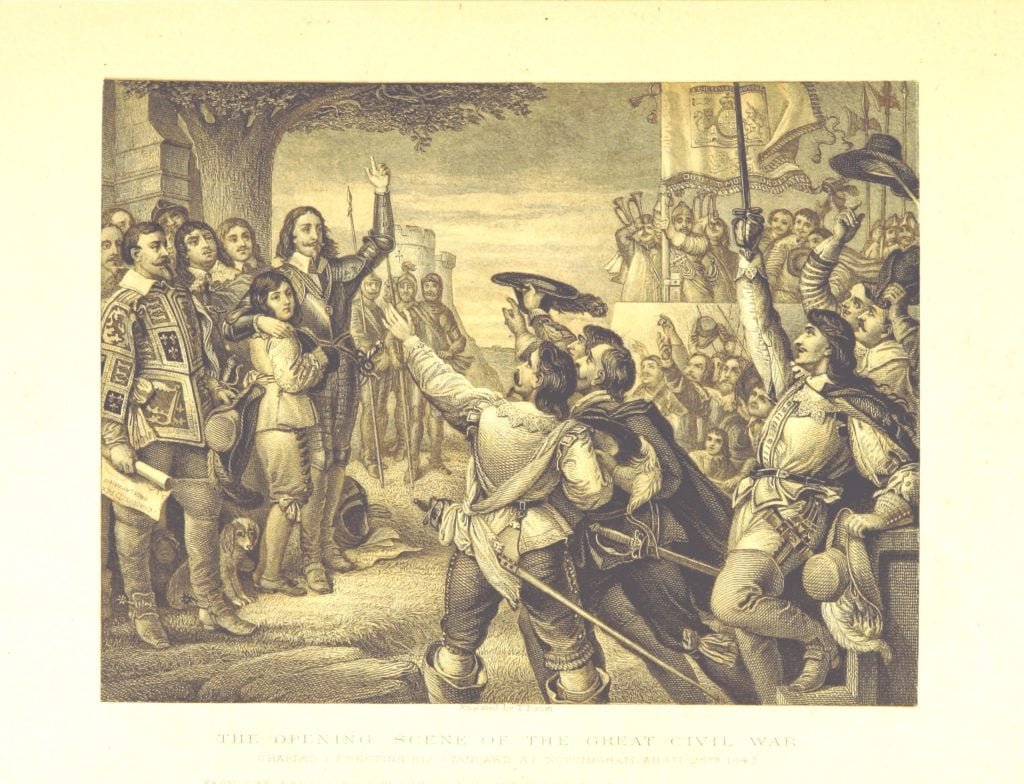
Oliver Cromwell rose as a key figure, driving the Parliamentarian powers to triumph. The war led to the trial and execution of Charles I, the foundation of the Commonwealth under Cromwell, and the transitory annulment of the monarchy. Though the monarchy was reestablished in 1660, the war had enduring impacts, restrained royal power, and laid the basis for a constitutional monarchy.
The Napoleonic Wars (1803–1815)
Britain played a definitive part in the Napoleonic Wars, a series of clashes against Napoleon Bonaparte’s French Domain. Britain was a key part of the coalitions that sought to check Napoleon’s extension over Europe. The naval Battle of Trafalgar in 1805, where Chief Naval Officer Nelson secured a vital triumph, assured British maritime dominance for decades.
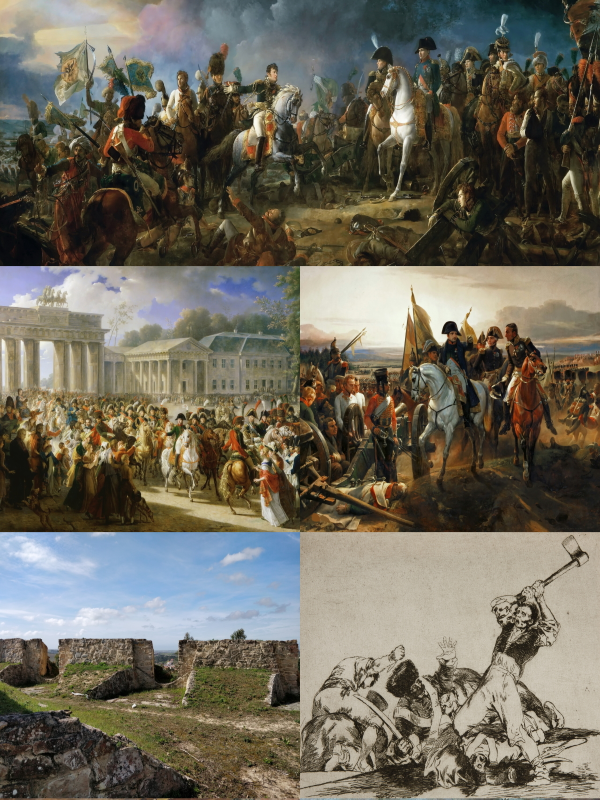
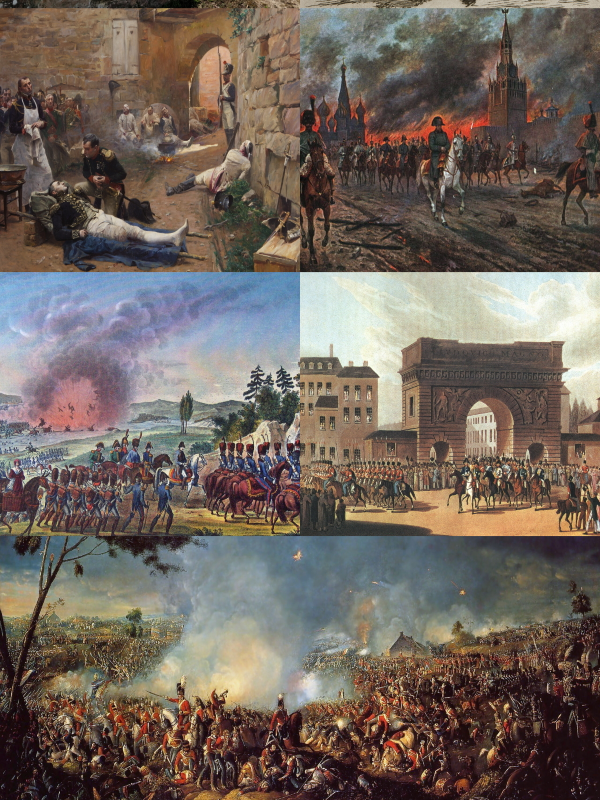
The wars ended in the Battle of Waterloo in 1815, where the Duke of Wellington drove the Allied strengths to vanquish Napoleon. The Napoleonic Wars set Britain’s status as a worldwide superpower, paving the way for its expansive domain in the 19th century.
The Crimean War (1853–1856)
The Crimean War is frequently considered one of the primary “modern” wars which was held between Russia and a union of Britain, France, the Ottoman Empire, and Sardinia. The war was fundamentally about controlling access to devout sites in the Holy Land, but it also highlighted the control struggle over the declining Ottoman Domain.
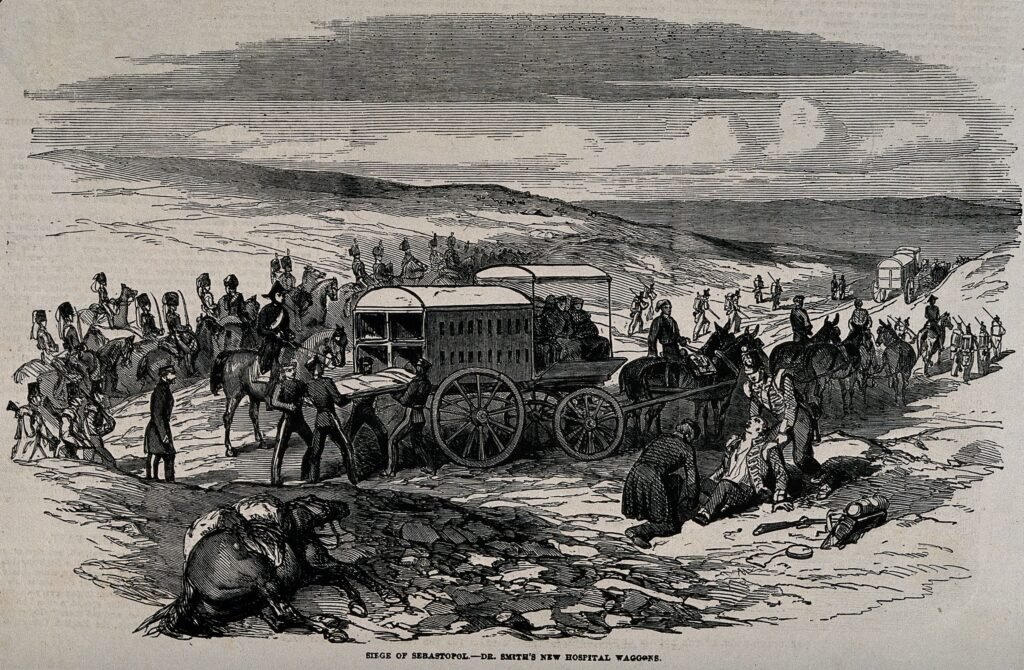
The Charge of the Light Brigade during the Fight of Balaclava became symbolic of both the heroism and worthlessness of war. Furthermore, the war saw the rise of Florence Nightingale, whose pioneering nursing practices revolutionized medical care. The strife uncovered weaknesses in British military techniques, driving critical changes.
The First World War (1914–1918)
World War I was a watershed moment in British history. Initially impelled by alliances and nationalist pressures in Europe, Britain entered the war in 1914. The strife rapidly descended into a brutal stalemate, characterized by trench fighting and enormous loss of life, as seen in fights like the Somme in 1916.
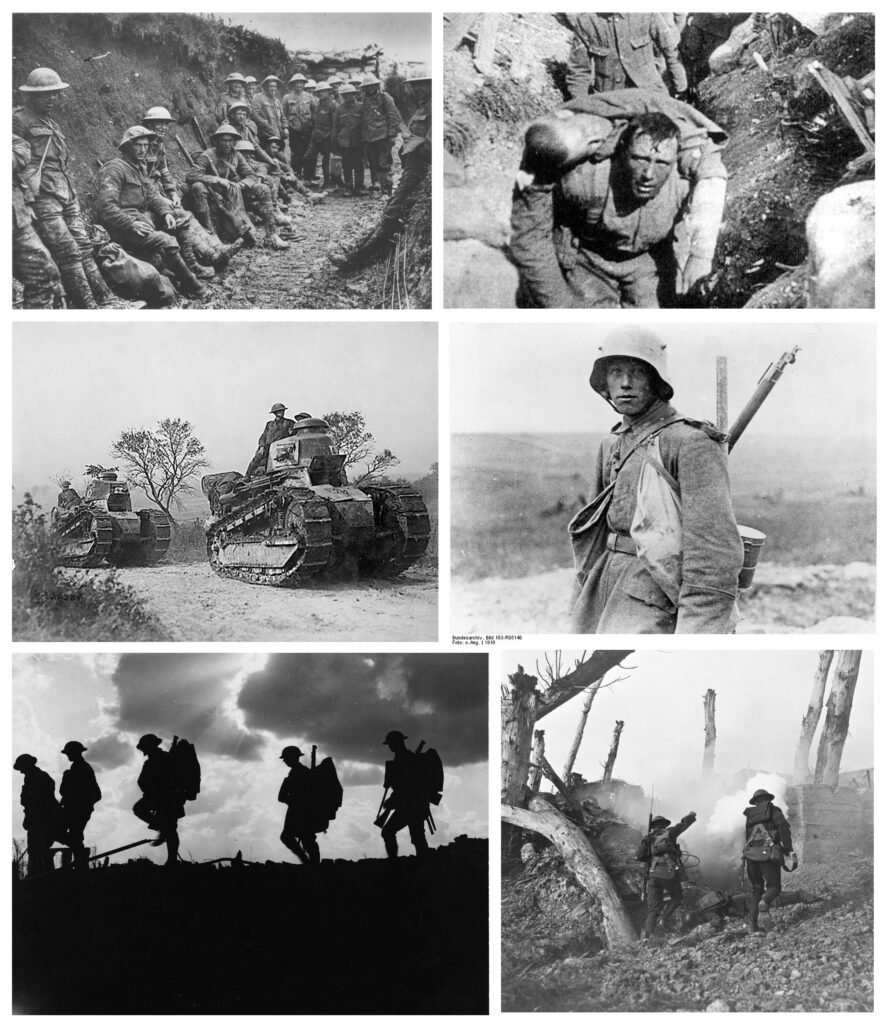
The war’s conclusion in 1918 had significant societal impacts, including the drop in domains, shifts in class structures, and the rise of movements for women’s suffrage. Britain emerged triumphant but seriously weakened, sowing the seeds for changes in its global standing.
The Second World War (1939–1945)
World War II was another defining moment, pushing Britain into a worldwide battle against Nazi Germany and its allies. Britain’s strength during the Fight of Britain and the Blitz, when the country stood alone against Hitler, remains a vital chapter in its history.
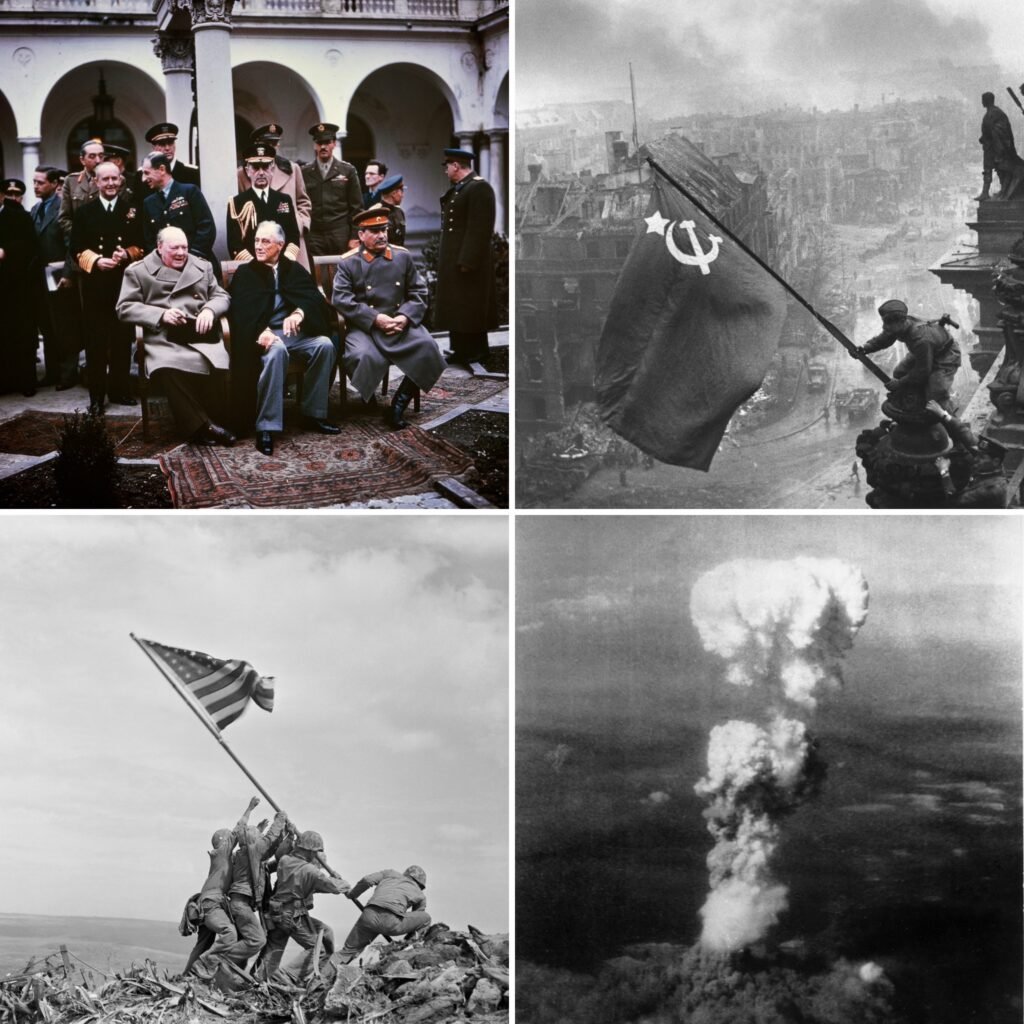
The D-Day landings in 1944, in which British powers played a pivotal part, marked the start of the conclusion for Nazi Germany. However, the war too marked the start of the conclusion of the British Realm. Post-war financial challenges and decolonization endeavors led to Britain’s move from an empire to a modern nation-state.
The Falklands War (1982)
The Falklands War was a brief but strong strife between Britain and Argentina over the sovereignty of the Falkland Islands. Argentina’s attack in April 1982 provoked a quick British military reaction, culminating in a British triumph and the restoration of British control.
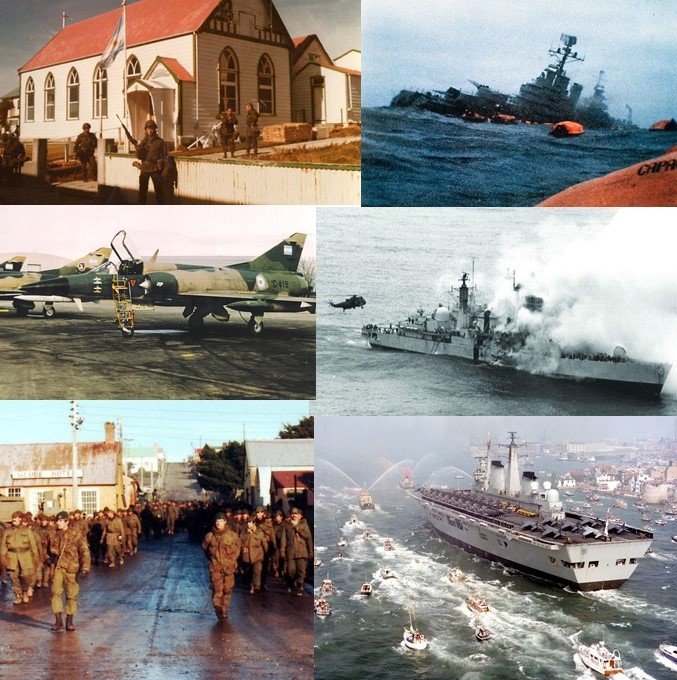
The war had critical political impacts, boosting Prime Minister Margaret Thatcher’s popularity and strengthening British national pride. It also illustrated Britain’s capacity to extend military control even in the post-imperial era.
The Troubles in Northern Ireland (1968–1998)
The Inconveniences were a prolonged period of sectarian struggle in Northern Ireland, established in historical pressures between the Protestant Unionist larger part and the Catholic nationalist minority. Started by civil rights protests in the late 1960s, the struggle raised into savagery involving paramilitary groups, British strengths, and civilian casualties.
The 1972 Bloody Sunday occurrence, where British soldiers shot unarmed protesters, escalated the struggle. The inevitable signing of the Good Friday Agreement in 1998 marked a turning point, leading to a fragile but enduring peace and power-sharing government in Northern Ireland.
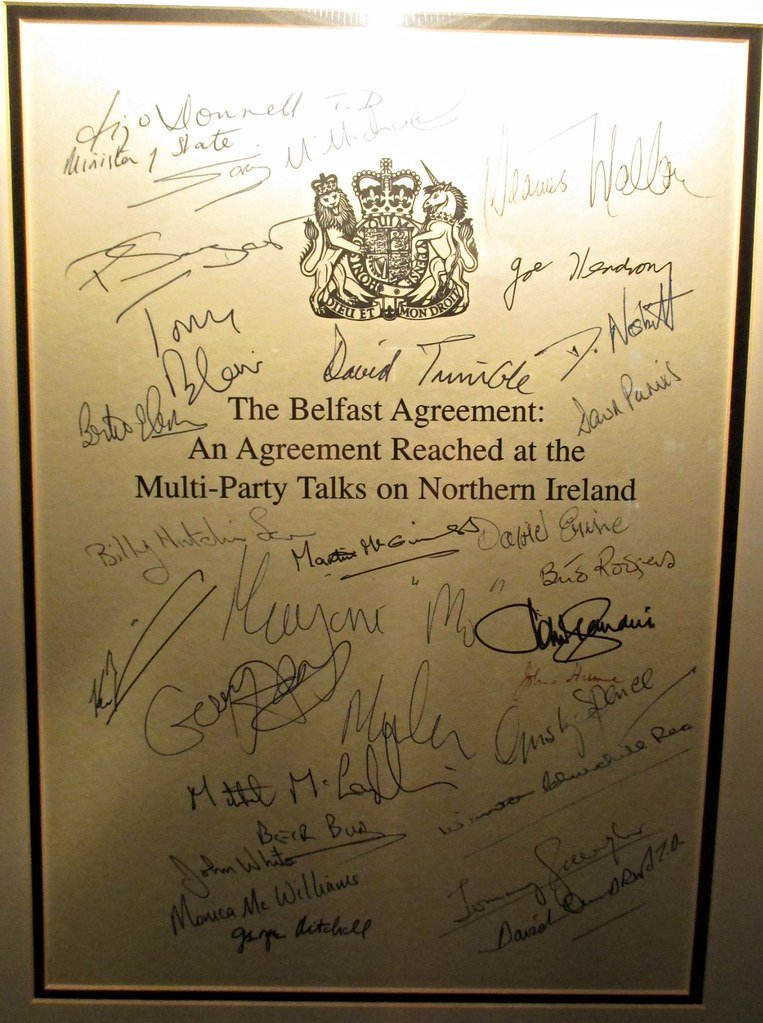
Conclusion
The wars and conflicts discussed here have been crucial in shaping British history, culture, and identity. From medieval battles that established dynasties to modern conflicts that redefined Britain’s role on the world stage, each of these events left a lasting legacy. Understanding these moments helps us appreciate how Britain evolved into the nation it is today, with all its complexities and enduring global influence.
FAQs
1. What was the most significant conflict in British history?
While many conflicts have been pivotal, the Norman Conquest of 1066 fundamentally transformed English society, setting the stage for the nation’s future.
2. How did the World Wars change Britain’s global influence?
The World Wars significantly weakened Britain, leading to the decline of the British Empire and a shift towards a more diplomatic and economic global role.
3. Why is the Norman Conquest so important in British history?
The Norman Conquest introduced the feudal system, reshaped the English language, and laid the groundwork for the centralized monarchy.
4. How did the Falklands War affect British politics?
The Falklands War reinforced Margaret Thatcher’s government, improving her notoriety and contributing to her electoral victory in 1983.
5. How did Britain contribute to Napoleon’s defeat?
Britain was instrumental in the defeat of Napoleon, particularly through its naval dominance at Trafalgar and ground leadership at Waterloo.



